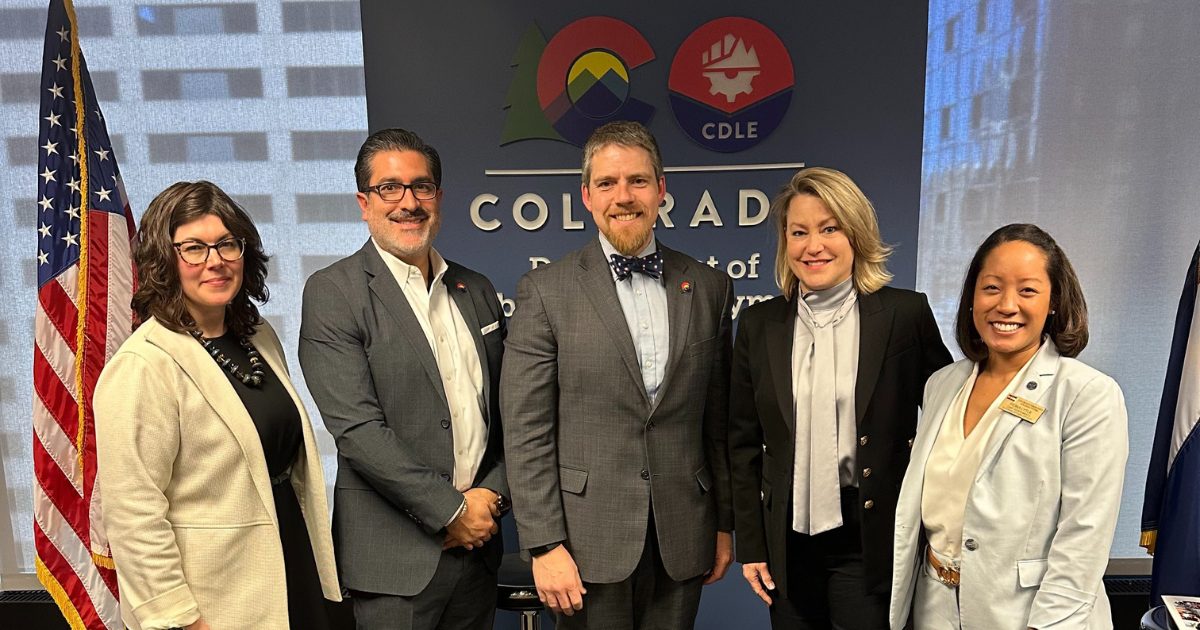From taking career and technical courses to saving time and money, the reasons to opt for a community college are as diverse as the students who attend them. So how can community colleges continue to recruit and retain students?
To find out, Colorado Community College System (CCCS) vice chancellor Dr. Landon Pirius moderated a student panel discussion last month organized by the Western Interstate Commission for Higher Education (WICHE). Panelists included Gerardo Chavez from Riverside City College in California, Hsa Kapru Say from Lake Area Technical College in South Dakota, and Kat Marty from Northeastern Junior College, a CCCS college located in Sterling.
It’s really important to hear the student voice as we make changes and improvements at the colleges.
To kick off the discussion, Dr. Pirius invited the panelists to share their education journey and the unique advantages to attending a community college.
Say, who’s originally from Thailand, said her dream to become a police officer led her to community college. The law enforcement academy she attends combines classroom studies with role-playing activities that mimic real-world interactions.
“My instructor has been so helpful,” she said. “He’s willing to work with me one on one and help me improve my English and my writing—just help me improve what I need for my profession.”
For Chavez, a first-generation student from El Salvador, community college provided a lifeline. Coming from an under-resourced school, he often lacked academic support and struggled with his grades. He assumed college was out of reach until a math teacher pulled him aside and encouraged him to apply to the community college down the street.
“I was just glad that I was getting a higher education, but that’s where I started seeing a stigma about community college for people who didn’t get accepted at a university,” Chavez said. “For many of us, it’s the only choice that we have, and that’s okay. That’s when I realized that my choice going to community college is good—it’s economically safe for me, and I don’t have to pay crazy tuition.”
Marty, the NJC student, was attracted by the smaller class sizes and the college’s close-knit community. After high school she took a gap year serving as a Future Farmers of America officer and wanted to ease back into her studies.
“We live on campus, we have residential life—we have a lot of the things that you get from your university but on a smaller scale,” said Marty, who aspires to be an agricultural policy advisor. “That allows you to have a little bit more access to your teachers. I really, really value one-on-one help.”
Although community colleges have a lot to offer, they also serve a student body that may face more social barriers to education, the panelists said. Addressing social determinants of health—such as food and housing insecurity—is key to helping them persevere, Chavez said.
Expenses and other factors in life can really impede students from going to school and completing their courses.
Marty agreed, noting that campuses need more mental health resources to help students deal with these challenges.
“My very first semester I got worried that I wasn’t going to be able to come back the following semester, and because of that, I kind of started to slip a little bit in my grades,” she said. “Having that financial stability is also very helpful for the success of students.”
It’s this blend of quality, affordable education and strong student supports that transform lives, Dr. Pirius said. He implored the panelists to stay involved and to keep sharing their experiences to encourage more of their peers to take the community college route.
“Community colleges embrace the whole student—not just the student experience inside of the classroom,” he said.


